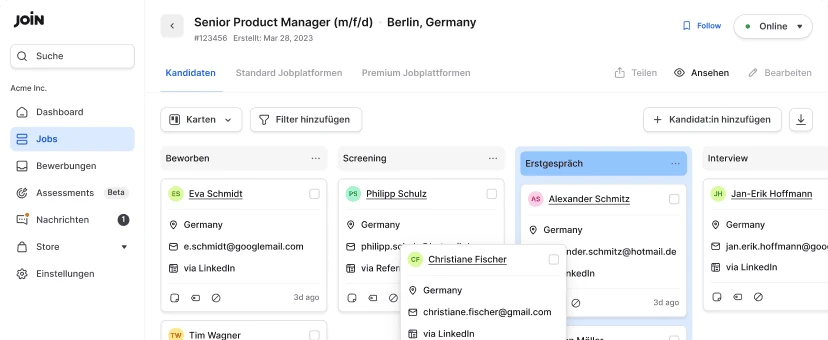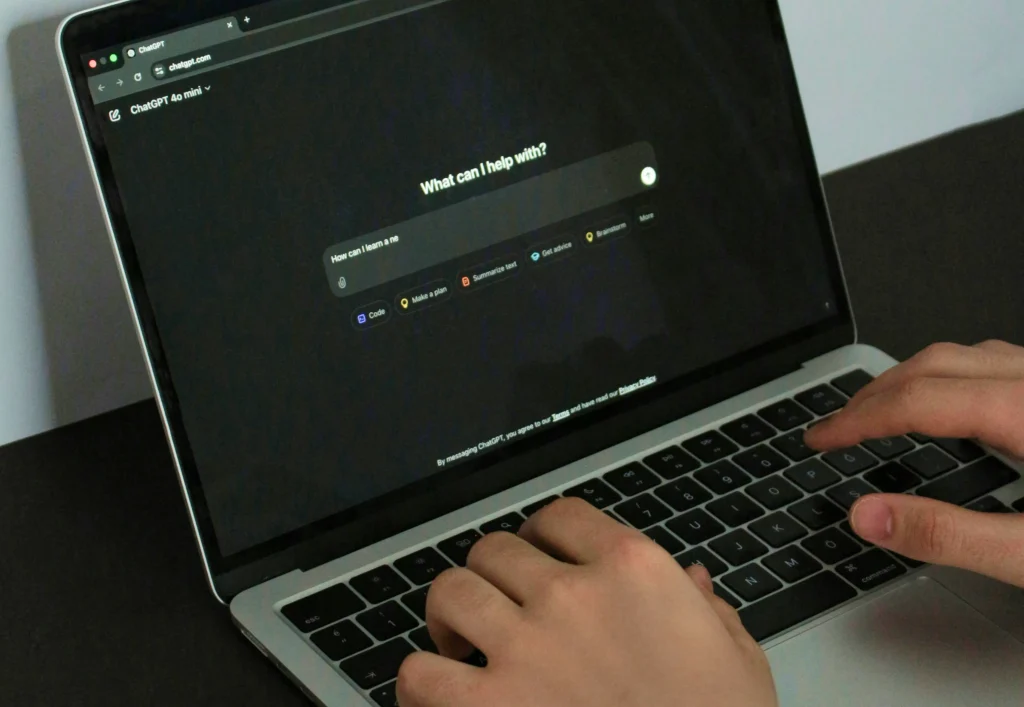Top 45 situational interview questions
Situational interview questions can be so tricky for candidates. Your candidate might have a lot of knowledge and experience, but you should put their skills to the test! Compared with behavioural interview questions, situational questions can show your candidate’s thought process, problem-solving abilities, and emotional quotient by answering hypothetical situations and challenges.
Table of contents
- What are situational interview questions?
- Difference between situational and behavioural interview questions
- 45 situational interview questions
What are situational interview questions?
Situational interview questions are a type of behavioural interview question that ask candidates to describe how they would handle a specific situation or scenario. These questions assess a candidate’s problem-solving skills, decision-making abilities, and how they handle various situations. These questions can be specific to the job or industry, such as “How would you handle a difficult customer?” or more general, such as “How do you handle a tight deadline?” Situational interview questions provide insight into a candidate’s past behaviour, which can be used to predict how they will behave in similar situations in the future.Why are situational questions important?
Situational interview questions are essential for several reasons:- They provide insight into a candidate’s problem-solving skills: By asking a candidate how they would handle a specific situation, an interviewer can gain insight into how the candidate thinks and approaches problem-solving.
- They assess decision-making abilities: Situational interview questions allow an interviewer to gauge a candidate’s decision-making abilities and how they handle different situations.
- They provide a real-life scenario: Situational interview questions allow candidates to demonstrate how they would handle a real-life scenario they may encounter.
- They are a good predictor of future behaviour: These questions will be beneficial to predict how your candidate might react in future situations. It gives you an insight into their thought process and calls to action.
- They can help to identify red flags: Situational interview questions can help to identify any red flags or concerns about a candidate’s behaviour or decision-making abilities.
Difference between situational and behavioural interview questions
Situational and behavioural interview questions are designed to assess a candidate’s behaviour and how it relates to their ability to perform in a specific role. However, there are some critical differences between the two types of questions. Situational interview questions ask candidates to describe how they would handle a specific scenario or situation they may encounter on the job. These questions assess a candidate’s problem-solving skills, decision-making abilities, and how they handle different cases. Behavioural interview questions ask candidates to describe specific situations or experiences from their past that demonstrate their skills, abilities, and qualifications. These questions are designed to assess a candidate’s past behaviour and how it relates to their ability to perform in the role. In summary, situational interview questions focus on a candidate’s hypothetical behaviour in the future based on a specific scenario. While behavioural interview questions focus on a candidate’s past behaviour to predict their future performance.
Top 45 situational questions to ask during job interviews (and answers to look for)
Here we have the top 45 situational interview questions and answers to make your hiring and screening process easier!- If your manager assigns you a task that you have never done before, how would you approach it?
Answer tip: With this question, your candidate should showcase their willingness to learn and adapt to new situations. They can also explain their approach to tackling new tasks, such as researching and seeking guidance from experienced colleagues, breaking the task down into smaller steps, and seeking feedback along the way. It is essential to show that they are proactive, resourceful, and open-minded when faced with new challenges.
- What would you do if you disagreed with a decision your manager made?
Answer tip: Handling conflict effectively in the workplace is essential. Your ideal candidate should start by explaining their approach to constructive communication and willingness to have open and honest discussions. They can also highlight the importance of understanding the manager’s perspective and reasoning before raising any concerns.
- What would you do if a colleague took the credit for your work?
Answer tip: Your candidate should address the situation through open communication with their colleague and manager. They should want to understand the reason for their colleague’s actions and find a solution that is fair and respectful to everyone involved. If the situation cannot be resolved through communication, they would consider involving HR or other appropriate resources to resolve the issue.
- How would you deal with a manager who refused to recognise your talent and efforts?
Answer tip: Effective communication is an essential soft skill to have. You should seek an answer where your candidate effectively communicates their value and contributions to the manager and the team. They should highlight their ability to collaborate and work well with a complex manager and suggest proactive steps. This could include seeking feedback, documenting their achievements, and setting performance goals to demonstrate their abilities.
- How would you manage time and performance while working remotely?
Answer tip: Your candidate should be able to emphasise the importance of setting clear boundaries and creating a routine to stay organised and productive. They can mention techniques such as scheduling regular check-ins with the team, using time management tools and technologies, and prioritising tasks based on their deadlines and level of importance. The candidate should also emphasise the importance of maintaining clear communication with the team and staying connected through various means, such as video conferencing, email, and instant messaging.
- How would you go about motivating a team member who is struggling?
Answer tip: Sometimes lacking motivation and struggling at work is expected. What matters is how you can find a creative and effective solution to support the team member. Your candidate should showcase their interpersonal and leadership skills and willingness to listen, be empathetic, and be supportive.
- What would be your reaction if a project you had been working on suddenly changed or the deadline changed?
Answer tip: A candidate in an interview could answer the question by highlighting their adaptability and ability to handle unexpected changes in a project. They could also demonstrate their proactive approach to problem-solving by mentioning steps to ensure the project still meets its goals. Such as re-evaluating the timeline, resources, and plan, communicating with team members, and adjusting priorities as needed. The candidate should also emphasise the importance of open communication and working collaboratively with the team and manager to find a solution that meets everyone’s needs.
- What if you realise at the deadline that a report you wrote to your supervisor does not reach the expected quality? What would you do?
Answer tip: A candidate in an interview could answer this question by acknowledging the importance of meeting deadlines and the quality of work being produced. They could then discuss the steps they would take in this scenario.
- How would you deal with a coworker with whom you cannot build a successful working relationship?
Answer tip: When answering this question, candidates could highlight their ability to handle difficult situations professionally and respectfully. They could share their approach to communication and collaboration and how they prioritise finding common ground and working towards a solution.
- How would you deal with your work being criticised by your boss or supervisor?
Answer tip: Your candidate in an interview should answer this question by showing that they are open to constructive criticism and use it to improve their work. They can say something like: “If my work is criticised by my boss or supervisor, I will take it as an opportunity to learn and improve. I would listen to their feedback, understand the areas that need improvement, and work on implementing the changes. I believe that constructive criticism is a valuable tool for personal and professional growth, and I am always open to receiving it.” This is an excellent example of being open to feedback.
- What would you do if work comes to a standstill because your colleagues and team leads cannot answer a few critical questions?
Answer tip: The candidate could answer this question by highlighting their proactive approach and problem-solving skills. They could mention steps to find a solution, such as seeking alternative resources, reaching out to other team members for assistance, or finding a temporary workaround.
- Explain what you would do if you were not hired for an internal position within your company?
Answer tip: This question can be tricky for candidates. Your candidate must understand the situation and try to seek feedback from their hiring manager, and know why they were not chosen and what areas they can improve.
- Explain what happens if your client asks to work on a project outside your specialisation?
Answer tip: Your candidate should be willing to take on new challenges, adapt to new situations, and work with others to expand their skill set. Furthermore, they should approach researching and learning new areas. The candidate could also highlight any previous experiences of working outside their specialisation, which showcases their adaptability.
- Explain how you can present complex tasks or projects in a simplified way?
Answer tip: A candidate in an interview should answer this question by highlighting their ability to communicate effectively and translate complex information into simple, easy-to-understand terms. They can mention their experience breaking down complex topics and tailoring communication to the audience’s level of understanding and any tools or techniques they use to simplify information.
- Explain how you present project presentations for clients and executives.
Answer tip: Effective presentation and communication skills are essential for various positions. You want a candidate that takes steps to understand their audience, such as researching their background and industry and tailoring their presentation to meet their needs. They could also discuss techniques for simplifying complex information, such as using visual aids, and strategies for engaging their audience, such as asking questions or providing interactive elements.
- What are some strategies you can employ to develop your self-control?
Answer tip: Self-control strategies can be such an effective technique for conflicts and challenges. You want a candidate that sets realistic goals, prioritises tasks, and avoids distractions. They can also mention that they focus on staying organised and focused, use positive self-talk to maintain motivation, and seek support from a mentor or coach when needed.
- Explain what ways you can successfully resolve a conflict?
Answer tip: Conflict resolution and interpersonal skills are not only good in your private life but also in your work life. Your candidate should explain the steps they would take to understand both sides of the argument, identify the root cause of the conflict, and develop a mutually beneficial solution. They can also highlight their ability to communicate effectively, listen actively, and build relationships, as these skills are critical for successful conflict resolution.
- What do you do if your team disagrees with your manager’s decisions?
Answer tip: Your candidate should first try to understand the manager’s perspective and reasoning behind the decision. They can then communicate their team’s concerns and provide alternative solutions professionally and respectfully.
- What would you do if your team was waiting on another department dragging its heels?
Answer tip: You want someone who can take the initiative and find ways to move the project forward despite obstacles, rather than simply waiting for someone else to solve the problem. Look for a candidate who showcases initiatives and takes leadership.
- How would you go about seeking out an additional certification for your career?
Answer tip: Everyone wants to develop their career, but what matters is the proactivity and actions your candidate can take. Look for a candidate who commits to continuous learning. They could describe the steps they would take to research and evaluate the different certification options and why they believe the chosen certification would benefit their career.
- What would you discuss if you could talk to our upper management today?
Answer tip: The ideal candidate should showcase their skills, strengths, and goals concerning the company and the position they are applying for. They could also share specific initiatives, suggestions, or ideas that would benefit the company and its upper management. The candidate could emphasise their motivation to be a part of the company and contribute to its growth.
- What would you do to make a good impression on a new customer?
Answer tip: Listening to the customer’s needs and understanding their goals is essential, especially if you communicate and have frequent contact with your customer. Your candidate should mention the importance of building trust and establishing a solid relationship with the customer. The candidate could also highlight their communication skills, ability to provide solutions, and approachability as crucial factors in making a positive impression on a new customer.
- How would you handle interruptions when you’re under a time constraint?
Answer tip: You can evaluate your candidate’s prioritisation and multitasking abilities with this question. They can discuss strategies they have used in the past to handle interruptions and how they balance the needs of the interruption with the need to stay on track with the task at hand. Additionally, the candidate can discuss their ability to communicate with their colleagues and prioritise tasks to ensure that deadlines are met, even in the face of interruptions.
- What would you do if you found a manager showing apparent favouritism for one employee or the opposite?
Answer tip: Your candidate needs to approach the situation professionally and impartially. You want someone who first tries to understand the reasons behind the manager’s behaviour, and then communicates their concerns to the manager in a respectful and non-confrontational manner.
- What would you do if you discovered a gross mistake with a customer’s order after they’ve paid?
Answer tip: You need someone honest, able to react fast, and take responsibility for their mistakes. Look for a candidate who immediately takes steps to rectify the situation. They could explain their approach to finding a timely solution and meeting the customer’s needs. Such as contacting the customer to apologise, offering a discount or compensation, or reordering the correct item.
- What would you do if you discovered a mistake made by a coworker?
Answer tip: People prefer to keep their mistakes private. You need good collaboration and feedback skills to do this without conflict. Your candidate should explain their communication style and how they would handle the situation, focusing on finding a solution that would benefit the company and the customer. They should also highlight their willingness to take responsibility for their actions and the actions of their team.
- What would you choose if you had to choose between professional and personal goals?
Answer tip: Having a balance between personal and professional goals is always essential for your growth. A candidate in an interview can answer this question by stating that it’s essential to look for ways to align both to achieve a harmonious work-life balance. They can also share an example of how they have successfully balanced personal and professional goals.
- What would you do if you made a mistake no one noticed?
Answer tip: Your candidate can express their commitment to integrity and responsibility. They could say something like, “If I made a mistake that no one noticed, I would immediately bring it to the attention of my manager or team lead. I believe in taking ownership of my work and being accountable for any mistakes.”
- What would you do if an angry and dissatisfied customer confronted you? How would you resolve their concern?
Answer tip: Here, your candidate’s ability to handle difficult situations with professionalism and empathy will be put to the test. Your candidate can start by acknowledging the customer’s concerns and showing empathy. Then, they can calmly and effectively listen to the customer’s issue and try to understand their point of view. Based on this understanding, the candidate can then use their problem-solving skills to develop a solution that addresses the customer’s concerns.
- Imagine you had the task of creating a presentation explaining a project to other team members. What strategies would you use to make the presentation engaging?
Answer tip: You can understand your candidate’s skills and experience in creating a presentation. Search for a candidate who makes a clear, concise, visually appealing presentation that engages the audience. Your ideal candidate will also have strategies for creating an interactive and dynamic presentation, such as using relevant examples, statistics and infographics, incorporating audience feedback and ensuring the presentation is aligned with the audience’s learning style.
- Consider a situation where you need approval from a manager to move to the next project step. Still, they’re taking a long time to respond. How would you approach this scenario?
Answer tip: Your candidate should focus on taking the initiative to ensure the project moves forward. They could highlight their practical communication skills and ability to work independently. They could also mention their willingness to find alternative solutions or resources to keep the project moving while still seeking approval from the manager.
- An irritated customer demands an impossible request. What steps do you take to appease them?
Answer tip: Empathy is necessary when dealing with customers in your everyday life. Please search for a candidate who acknowledges the customer’s frustration and actively listens to their concerns. The candidate should then calmly and politely explain the limitations or constraints that prevent the customer’s request from being fulfilled.
- Consider a scenario where your workplace switches to an entirely new online management system on short notice. What steps do you take to ensure you’re qualified to work with the new program?
Answer tip: With this question, you can evaluate how proactive your candidate is. They should emphasise their commitment to being proactive and taking responsibility for their own learning and development to effectively use the new system. This could be done by having training sessions, seeking certificates, or asking for help from colleagues or superiors.
- How would you react if you were presented with constructive criticism you disagreed with?
Answer tip: Search for a candidate who can professionally handle constructive criticism. In their answer, they should start by acknowledging the importance of receiving feedback and recognising the purpose of criticism. Then, they can express their disagreement respectfully and provide a rational explanation for their stance.
- How would you handle being unhappy with a particular aspect of your position?
Answer tip: Being unhappy with a particular aspect of your job can be expected; after all, no job is perfect. The candidate’s ability to proactively address workplace issues and find solutions is essential. A great candidate should discuss the steps they would take to bring the matter to the attention of their manager or HR representative and work towards finding a mutually beneficial solution.
- What would you do if you were given a task or assignment with which you had little to no familiarity?
Answer tip: Here, you can understand the level of problem-solving and adaptability skills your candidate has. You want someone willing to learn quickly, seek resources and guidance when needed, and approach the task positively and proactively. The candidate could also mention their willingness to collaborate with colleagues and their eagerness to take on new challenges and expand their skill set.
- How would you react if you saw signs of burnout in yourself?
Answer tip: It’s important to recognise burnout and to find self-care solutions to manage it. An ideal candidate should mention strategies to manage stress and maintain a healthy work-life balance, such as taking breaks, practising mindfulness, and seeking support from colleagues or a mentor. They can also express their commitment to proactively addressing burnout, for example, by setting realistic goals, prioritising self-care, and seeking feedback from their manager or HR.
- You notice a team member is scrolling through social media instead of working. How would you talk to them?
Answer tip: Your candidate should approach this situation professionally and constructively. They should emphasise the importance of clear and open communication, addressing the issue in a private setting, and finding a solution that works for both the team member and the company. Additionally, they should stress the importance of keeping a positive and supportive workplace culture and seeking the support of their manager or HR if necessary.
- What would you do if you were put into a situational leadership position at the last minute?
Answer tip: Employees with leadership skills can be so helpful to everyone in the team. Here you can evaluate the steps your candidate would take to prepare themselves for the situational leadership role, such as seeking out information and resources on the situation, understanding the expectations of their new role, and collaborating with other team members and stakeholders.
- Imagine you have a super-long project alongside your regular, more minor tasks. How would you approach it?
Answer tip: With this question, you can understand your candidate’s steps to prioritise and manage their workload effectively. The candidate should emphasise their ability to manage their time effectively, prioritise tasks, and communicate effectively with stakeholders.
- Halfway through a significant project, you realise you’ve made a big mistake in the early stages. How would you handle that?
Answer tip: Your ideal candidate should have fantastic problem-solving skills and the ability to take ownership of their work. Your candidate should emphasise that they would take immediate action to rectify the mistake. Furthermore, they could demonstrate their ability to learn from the error and the steps to prevent similar issues from occurring.
- What would you do if your team members continuously shot down your input and suggestions?
Answer tip: In this situation, your candidate should seek ways to effectively communicate and work with others. The candidate needs to show that they can work collaboratively, address conflicts, and find creative solutions rather than giving up when faced with resistance.
- A new employee has joined your team. What do you do on their first day?
Answer tip: Even though this question can be light-hearted and friendly, it gives you a lot of insight into your candidate’s teamwork skills and company fit. Your candidate should explain their approach to welcoming new team members and the importance of making an excellent first impression. Furthermore, they should also mention the steps they would take to ensure the new employee feels comfortable and integrated into the team.
- You’re very busy with your work, but a team member has asked for your help before they go on holiday for the week. What would you do?
Answer tip: Here is a straightforward question to assess your candidate’s importance on teamwork and communication skills. Your candidate should prioritise their workload and determine what can be postponed or delegated. So they can help their team member without impacting their own work. Furthermore, they can take actions like discussing the situation with their manager to ensure that deadlines are met, and any risks are addressed.
- How do you handle a situation where you have to work with a team with different communication styles?
Answer tip: Everyone has different communication styles. What matters is your candidate’s willingness to adapt and work effectively with a diverse team. They should emphasise their ability to communicate effectively, listen actively, and seek clarification to ensure clear and effective communication. The candidate could also highlight their ability to compromise, be flexible and open-minded, and find common ground to achieve a shared goal.
Belen Robleto
Belen was JOIN's Marketing Intern. She helped the team by writing diverse HR content and maintaining our social media channels.


